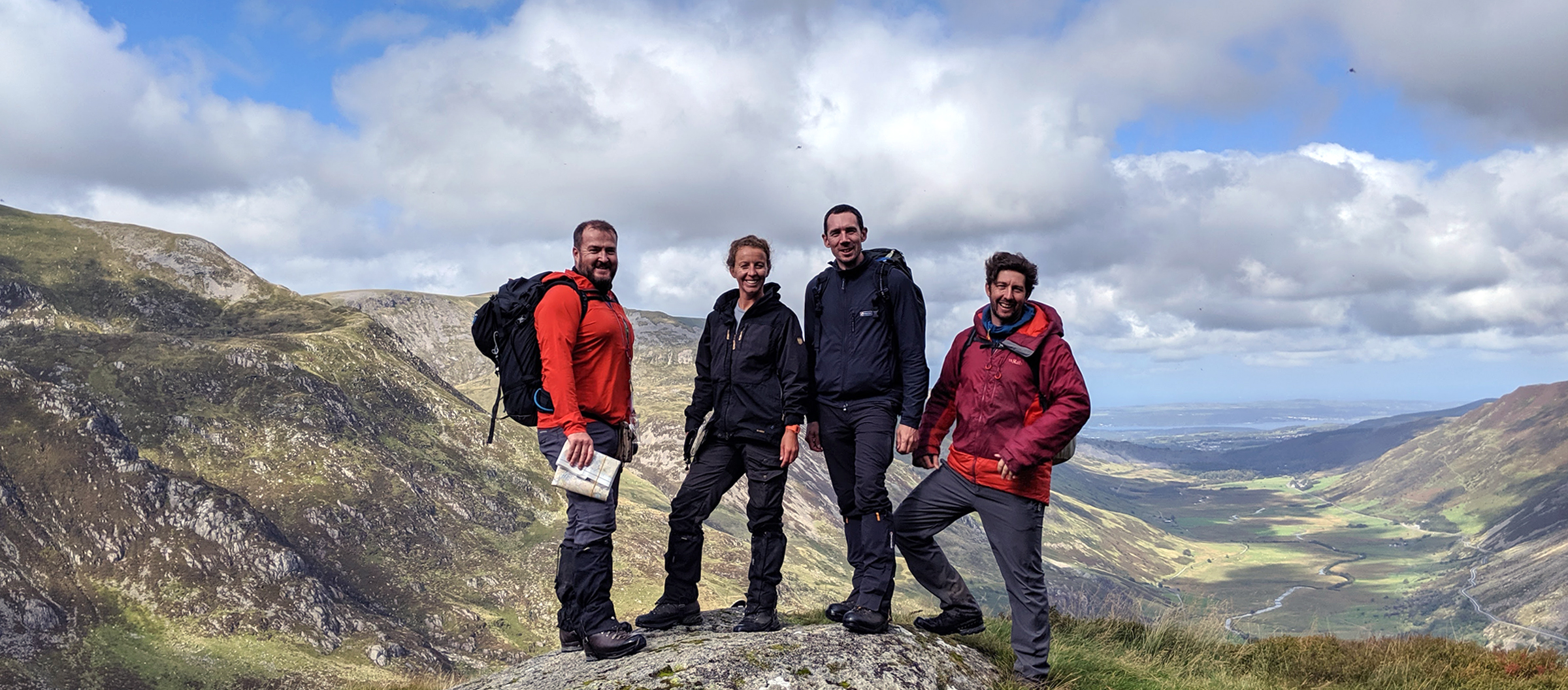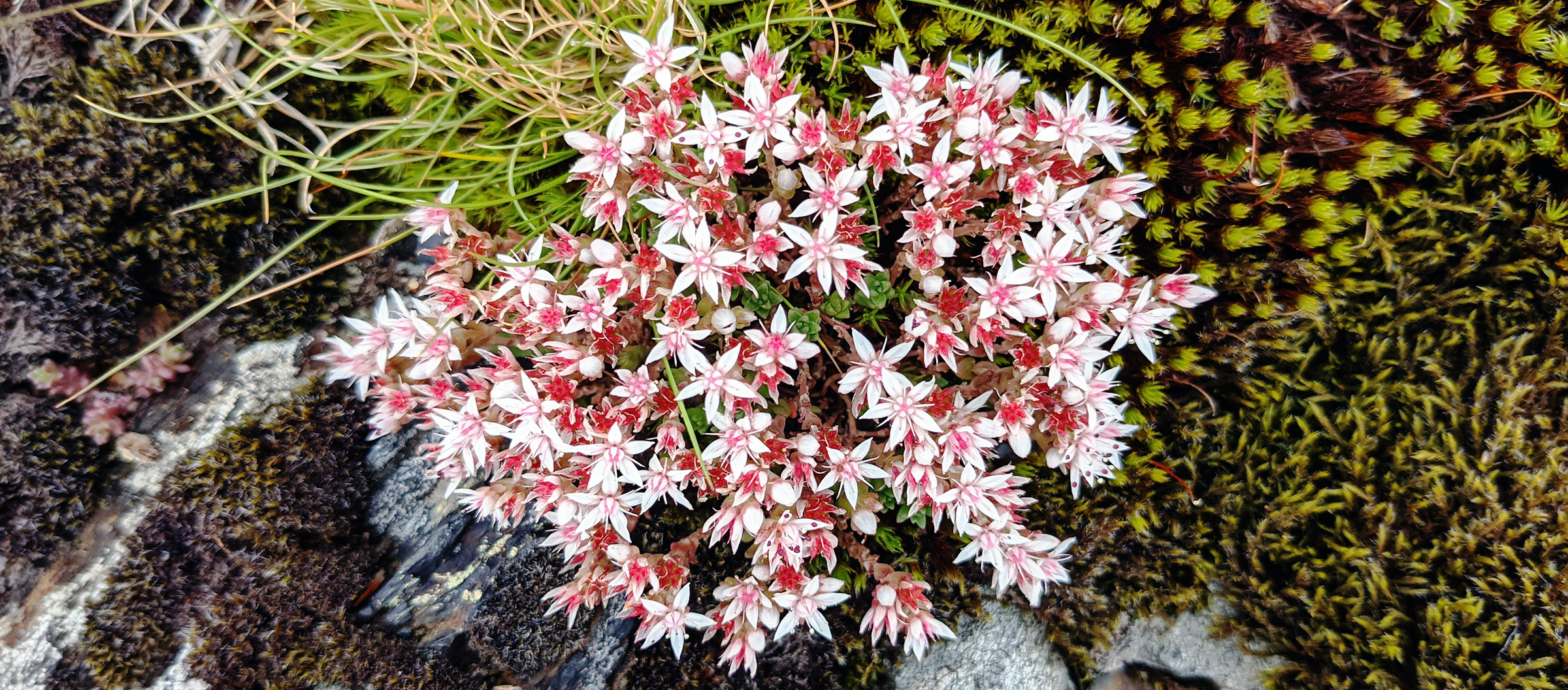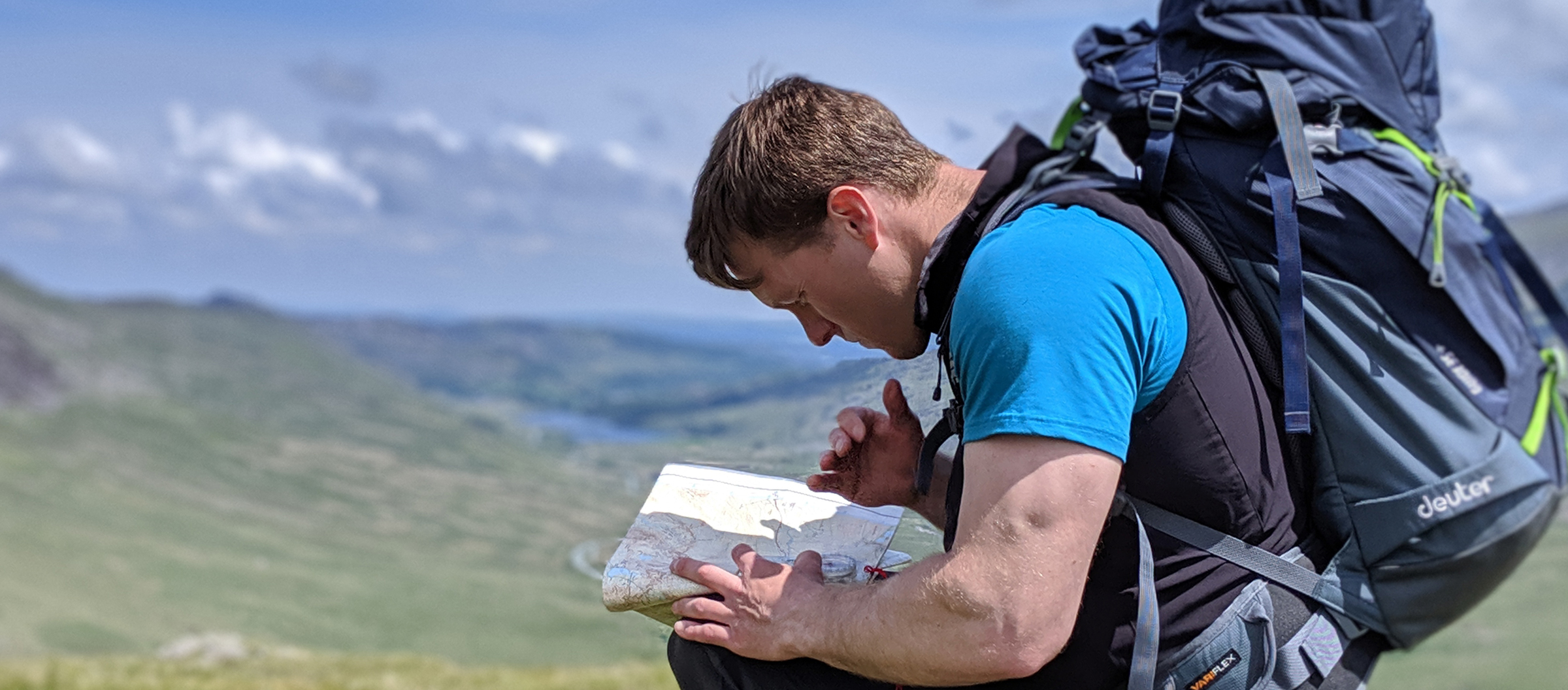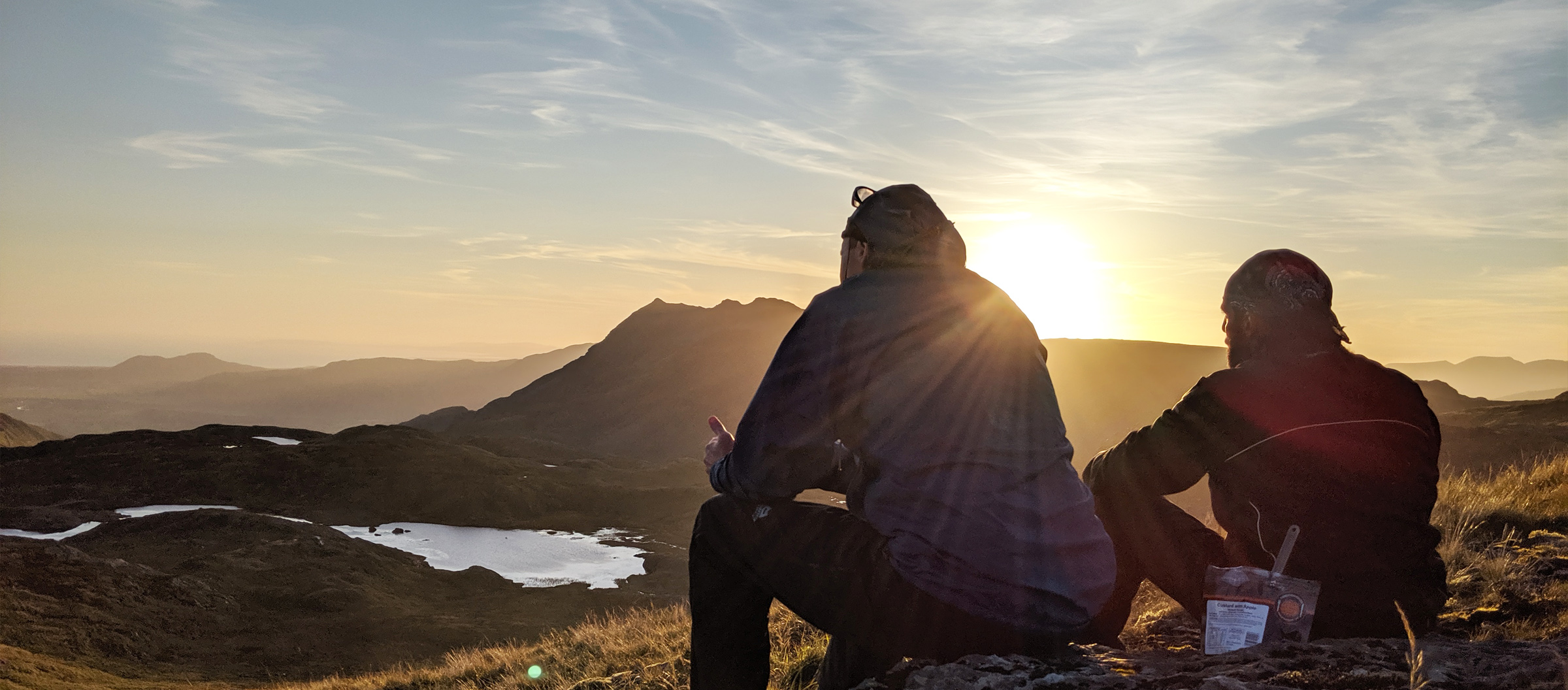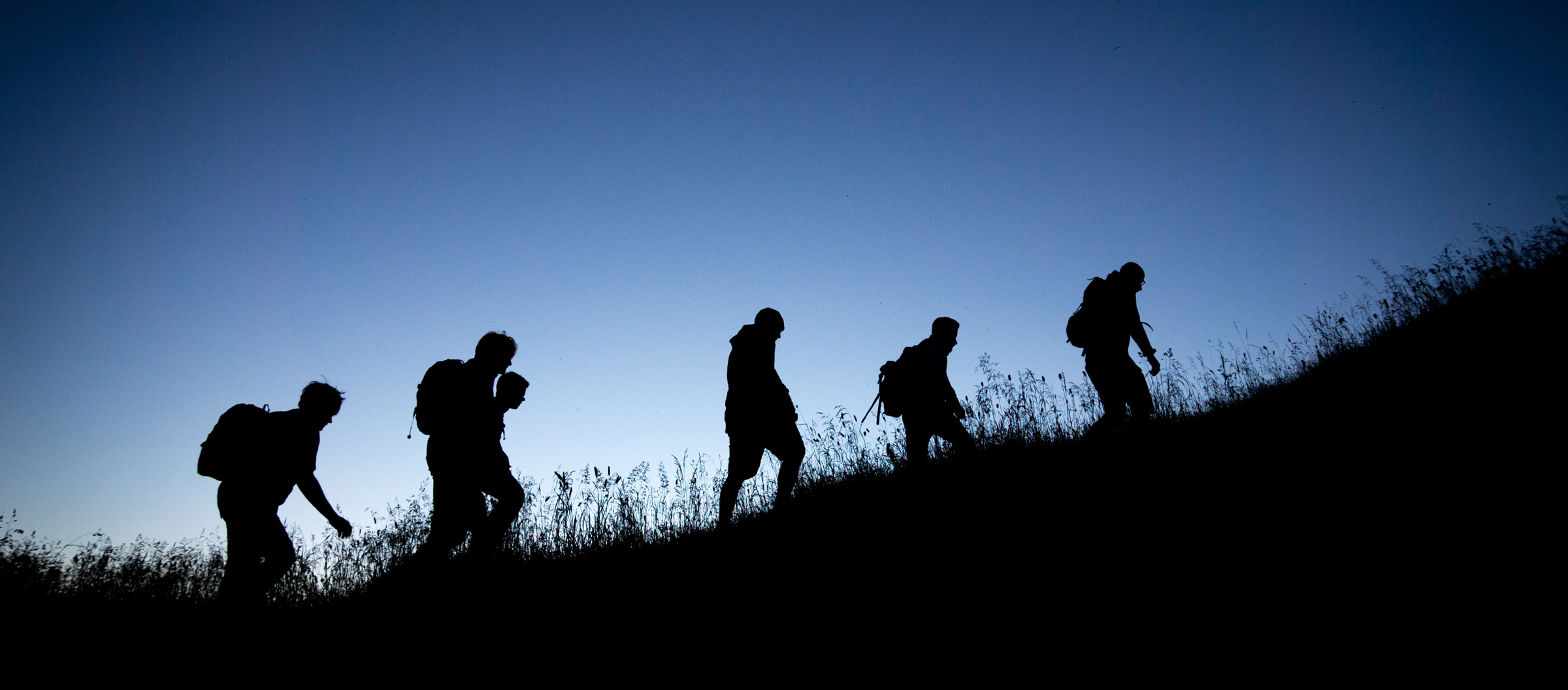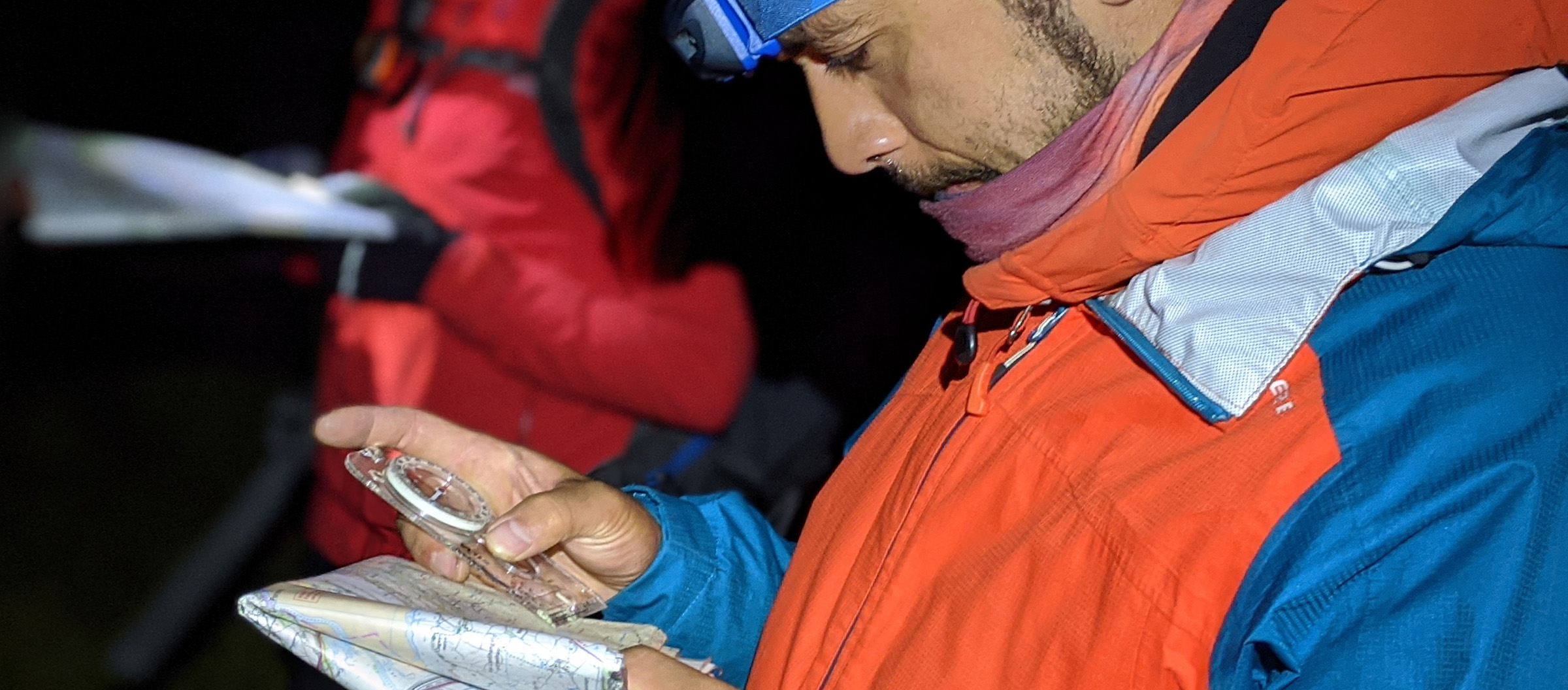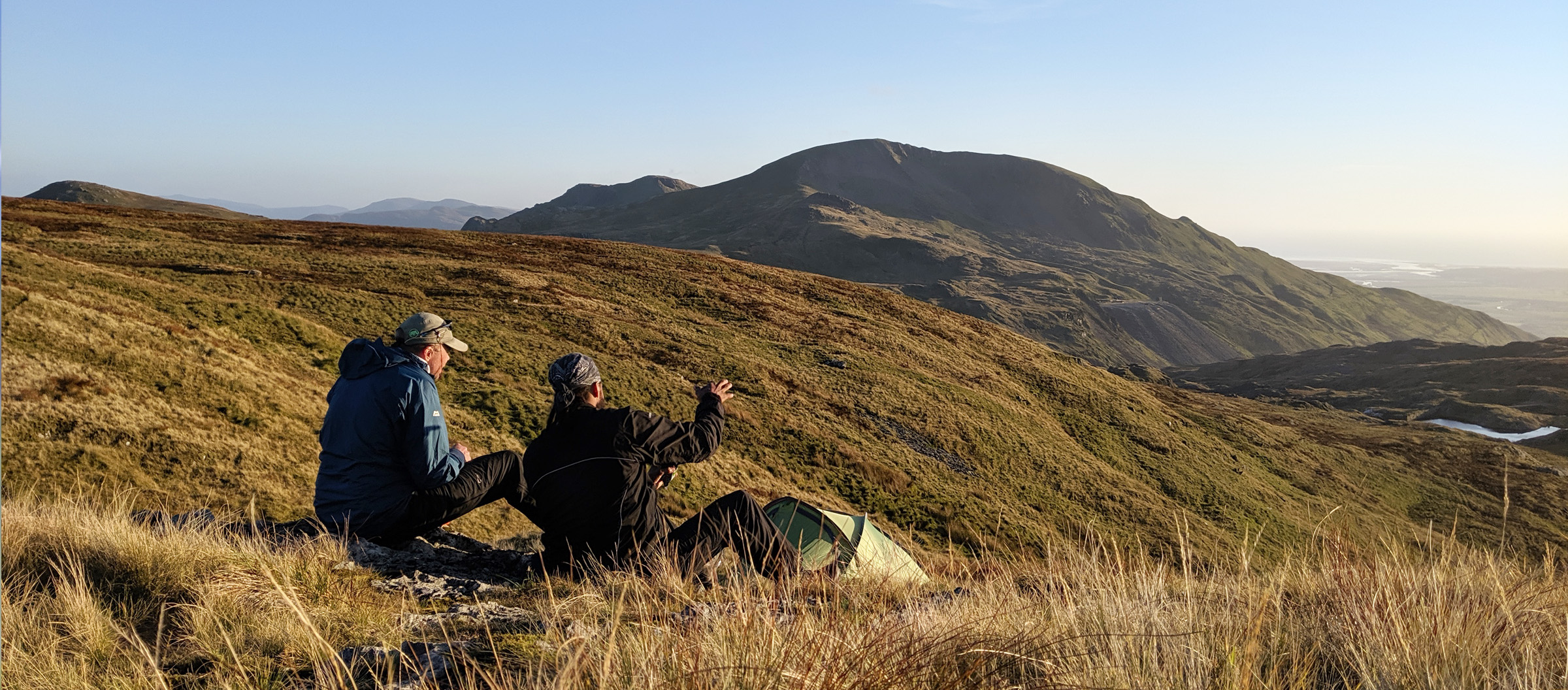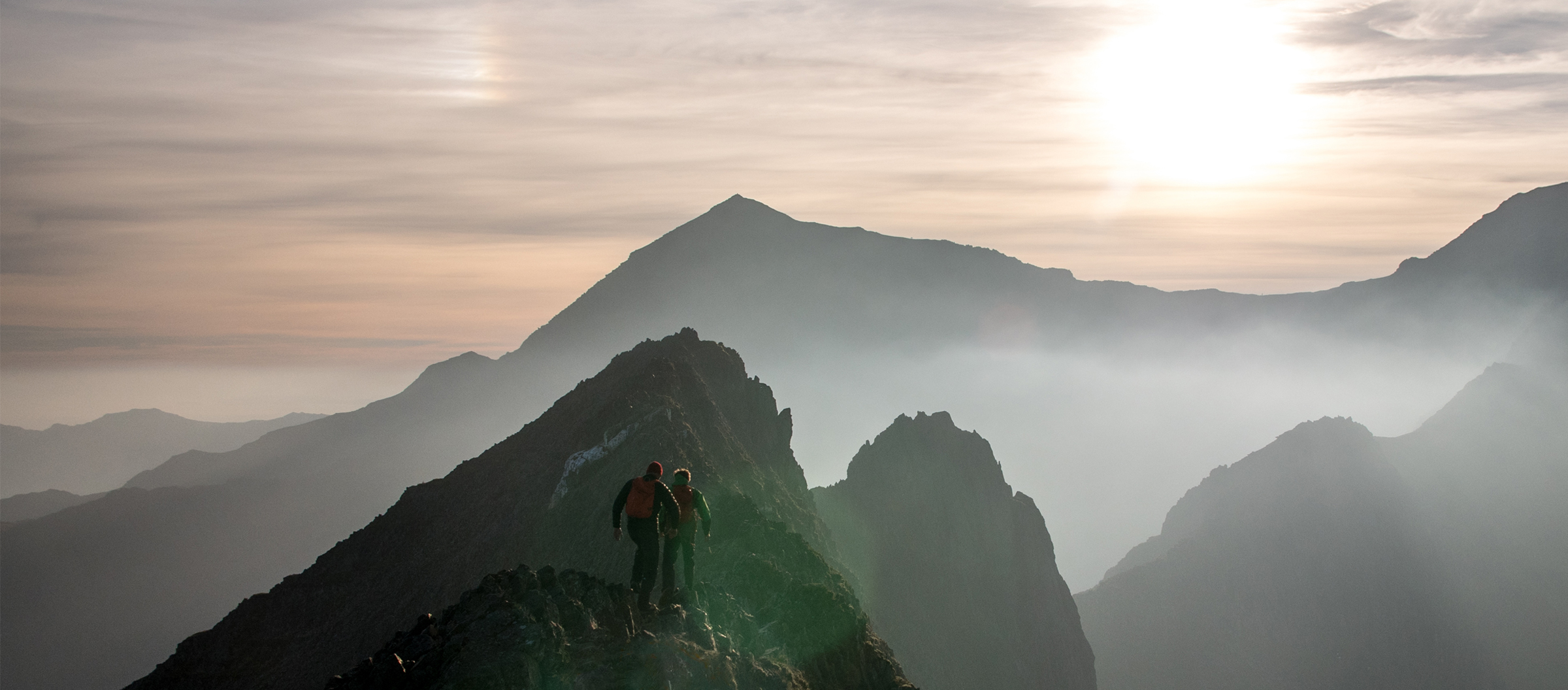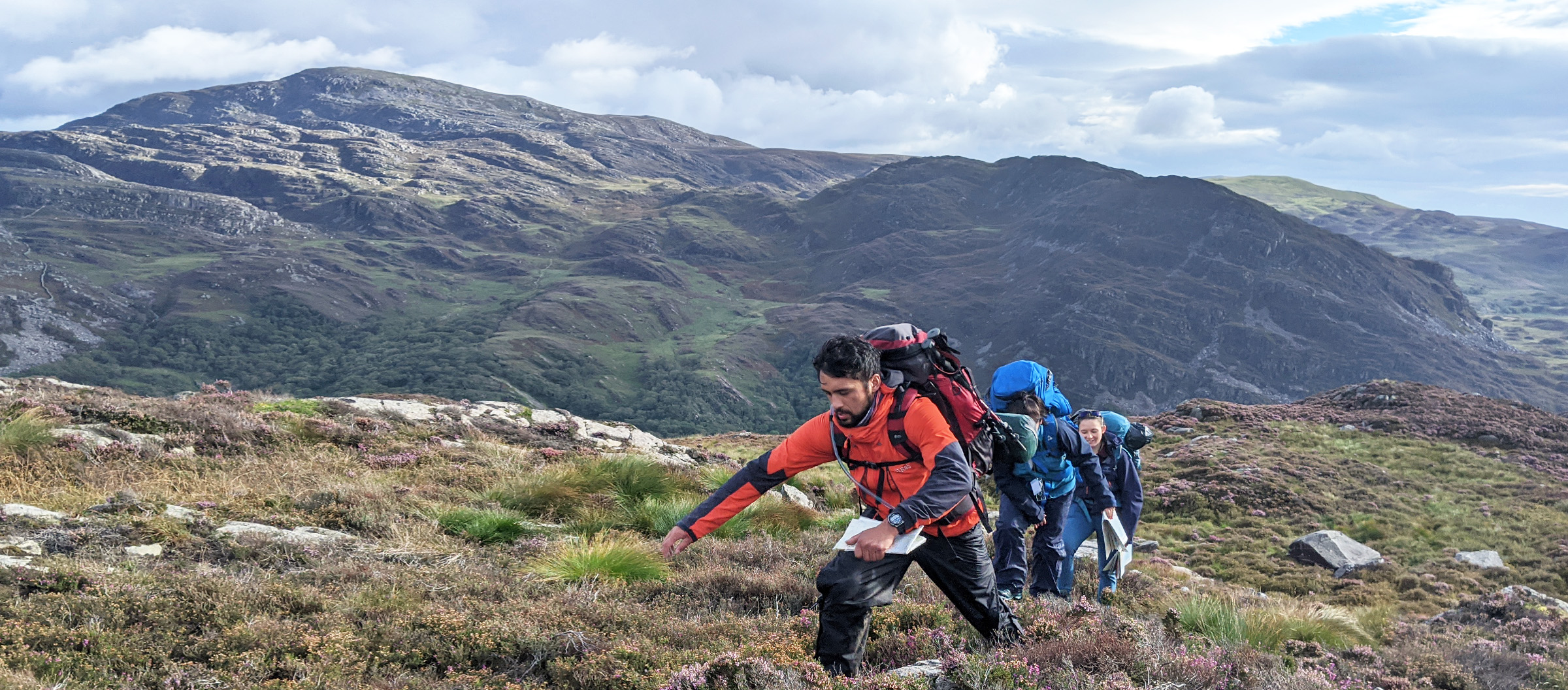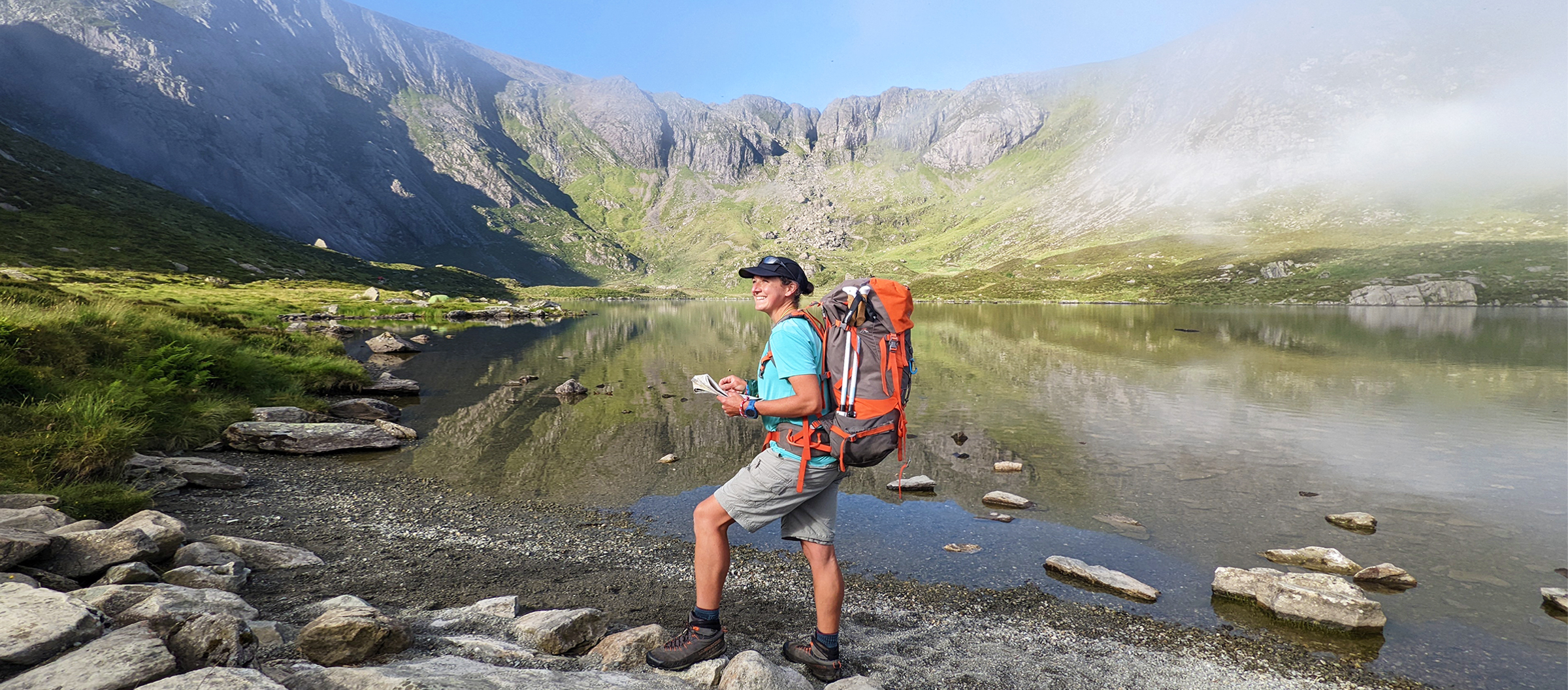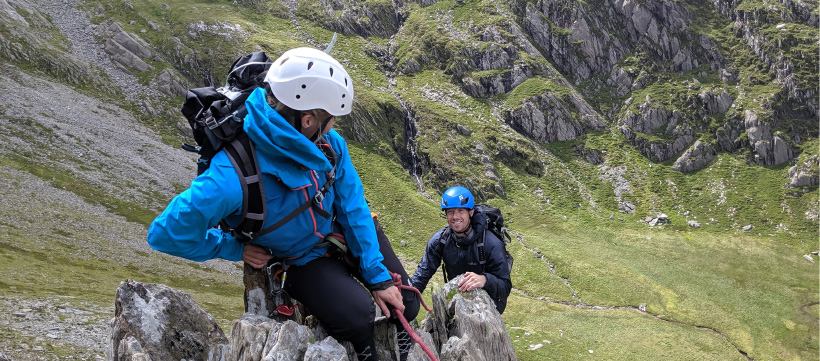Overview
We pride ourselves on providing relaxed Mountain Leader Assessments with friendly assessors who’ll support you through your journey and make it a positive experience. In addition to providing opportunities for you to show off your skills, we view assessment as an opportunity for additional development to prepare you once qualified for working with real groups. We’re always happy
The majority of the assessment is practical in nature taking place in the wonderful mountains of Eryri | Snowdonia National Park over 5 days, with a 3 day expedition. We set a homepaper to assess your knowledge on theory based aspects of the syllabus, so that you have time to ensure you’re prepared and don’t feel put on the spot with theory; this is assessed holistically in an informal group discussion with each person taking turns to answer questions. We also ask folk to prepare a “mastermind subject”, simply a brief chat on a topic of your choice related to the mountain environment, again designed to help you arrive prepared and guide you through the assessment process.
The course is based from our Basecamp in Llanberis, with great free tea/coffee, providing a quiet private space to run through the course welcome, morning briefings and the homepaper. We’ll finish the course here also with with a well deserved slice of cake! If you’re ready for your assessment, we’d love to spend a week hanging out in the mountains together with you on the last stage of gaining the Mountain Leader qualification.
Syllabus
The Mountain Leader Assessment covers the following main updated syllabus areas:
- Leadership & Decision Making – responsbilities of the leader & leadership styles in the outdoors.
- Navigation – map & compass work, and selecting appropriate strategies.
- Access and the environment – our responsibilities and instilling respect for the mountain environment, as well as enthusing and inspiring groups.
- Hazards and emergency procedures – managing groups in tricky and steep ground, environmental hazards such as animals, weather, water hazards and managing incidents.
- Equipment – selecting suitable personal and group kit for walking and camping.
- Expedition skills – camping kit and packing, food selection, cooking, and general campcraft.
- Weather – sources for weather forecasts, understanding impact on groups and planning.
- Background knowledge – having a general knowledge of hill walking and the wider mountain landscape, clubs, bodies, information sources etc.
Gallery
Course Details
Before booking, you should ensure you meet the prerequisites set out by Mountain Training before assessment;
- You must have attended a Mountain Leader Training course (or have been granted exemption)
- You must be familiar with the syllabus (see Mountain Leader Scheme Handbook).
- You must have logged a minimum of 40 Quality Mountain Days in three different regions of the UK and Ireland
- You must have logged at least 8 nights camping, including at least 4 nights wild camping
- You must have physically attended and completed (i.e. not online) a first aid course which involved at least two full days or sixteen hours of instruction and included an element of assessment
What if I don’t have all the prerequisites yet?
Please be aware Mountain Training updated the definition for a QMD in 2024. It is your responsibility to ensure your logbook reflects the new changes.
Read our guide to the updated definition in our blogpost What is a Qaulity Mountain Day? here.
All our course programs as ever are flexible to adapt to the specific needs of clients and individual experiences. The Mountain Leader award is, by it's nature, more at the mercy of the elements. We'll do our best to shift things around to escape truly awful weather.
Expedition - we try not to move this due to the headache of arranging accommodation though we may need to be flexible to avoid extreme weather. We recommend booking accommodation for the first 2 nights of your course (3 if travelling up the evening before). Any changes to the planned scheduling of the expedition will be discussed and taken as a group decision to help coordinate logistics.
Day 1
Navigation Day
- Course Start - we'll meet at Basecamp at 08:30 for introductions, discussion of your experience, aims & aspirations.
- Assessment Process - course outline, check First Aid Certificates and logbooks.
- Leader and Group Kit - equipment considerations for group members and leaders.
- Travel to Venue - we’ll organise lift-shares to reduce impact and ease parking. There’s walking right from our door-step; though we may drive up to 30 mins to escape poor weather.
- Navigation and Leadership - assessing navigation skills, party management and environmental knowledge on a general hill walking day.
- Return to Basecamp - return to Basecamp for around 16:00, grab a well-earned brew and review the day.
- Home Paper Discussion - group discussion looking through the home papers.
Day 2
Steep Ground Day
- Morning Briefing - we'll meet at Basecamp at 08:30 for weather forecasts and plan for the day.
- Managing Steep Ground - knots, anchor selection, belay systems, personal security, context of use in ascent and descent.
- Managing Steep Ground - route selection, risk assessment, briefings, mitigating falls.
- Use of the Rope - securing group members with a rope in both ascent and descent. Using the rope for confidence.
- Return to Basecamp - return to Basecamp for around 16:00, grab a well-earned brew and review the day.
- Expedition Planning - brief session to run through planning an expedition and run through details for the actual expedition.
Day 3
Expedition
- Morning Brief - we'll meet at Basecamp at 09:30 for weather brief, kit check and depart.
- Expedition - putting it all together, navigation, group management, environmental knowledge.
- Wildcamp - pitch camp for around 17:00 and grab a well-earned brew.
- Evening Break - a little free time to relax and enjoy the scenery or nap.
- Night Navigation - a circuit in the local area assessing night navigation.
Day 4
Expedition
- Break camp - pack kit, check camp area and depart.
- Expedition - further opportunities to practice navigation and party management. Relocation techniques for when it does go wrong,
- Expedition - putting it all together, navigation, group management, environmental knowledge.
- Map Scales - switch up the map scales with a greater emphasis on macro nav.
- Wildcamp - pitch camp for around 17:00 and grab a well-earned brew. Camp craft - discuss tents, stoves, water management, instructing camp craft to groups and cooking management.
- Evening Break - a little free time to relax and enjoy the scenery or nap.
- Night Navigation* - we may or may not head out on another night navigation session, dependent on group numbers, prevailing weather conditions, etc.
Day 5
Expedition
- Break camp - pack kit, check camp area and depart.
- Expedition - further opportunities demonstrate aspects of the syllabus as required.
- Water Hazards - river crossing avoidance, understanding flow and hazards, route choice, risk assessment, briefing groups and tactics for crossing. Change out of wet kit!
- Return to Basecamp - return to Basecamp for around 14:00, hand in kit, grab a well-earned brew and review the week.
- Individual Debriefs - assessment results, feedback and advice.
- What Next? - we’ll discuss individual Action Plans for deferrals. As a group we’ll discuss working as a Mountain Leader with advice and top tips.
- Course Finish - usually we’ll wrap up the course by around 15:00.
The Mountain Leader scheme is the highest qualification for people who want to lead groups in the mountains, hills and moorlands of the UK and Ireland in summer conditions. The award is the first that Mountain Training created back in 1963! You can see where the award fits within the other Mountain Training walking qualification pathways in this image.
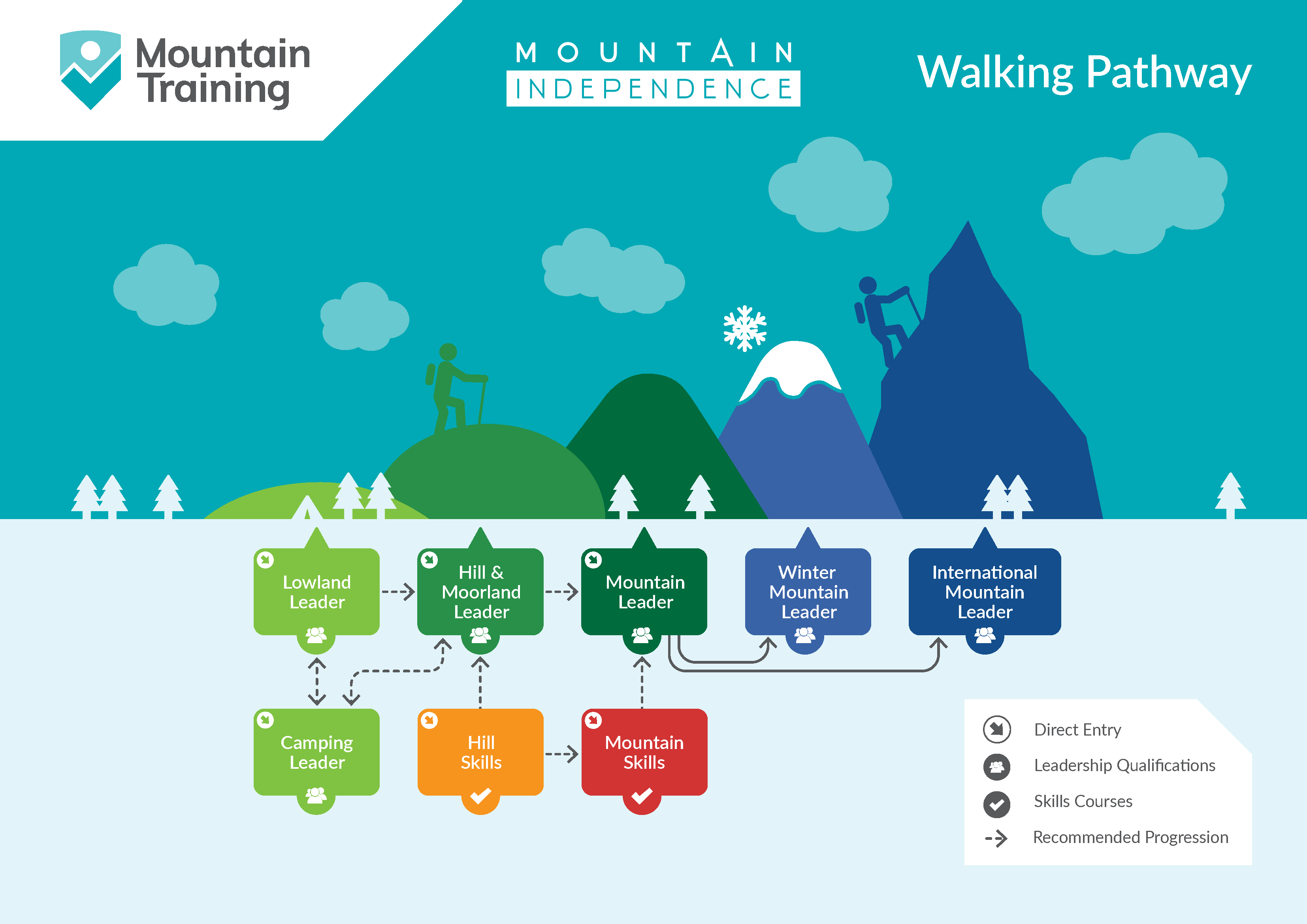
Mountain Training define the scope of the award as follows;
“A qualified Mountain Leader can lead others in mountain, hill and moorland environments. Qualification holders are able to manage groups safely during this activity.”
The Mountain Leader is recognised by the Health and Safety executive and the Adventure Activities Licensing Service as the appropriate qualification for those leading walking groups in the UK mountains areas shown in the picture below.
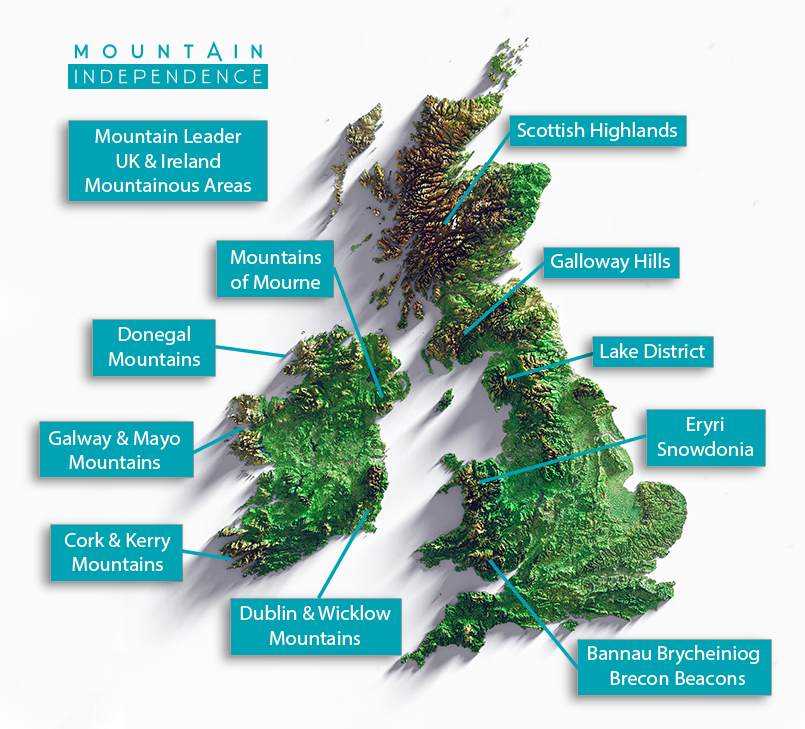
It’s a highly regarded and respected qualification across the outdoor industry with many companies using the ML as a benchmark for leadership and group management competency in combination with other skills to deliver peripheral activities even outside of mountain walking. It’s the first qualification I recommend folk who are interested in becoming outdoor instructors pursue, as there’s a wide range of varied work that can be done with the award. For those passionate about the outdoors, there’s few better jobs than working as a Mountain Leader.
FAQs
General FAQs
For more generalised questions please visit our FAQs page or for questions specifically relating to the Mountain Leader Assessment course see below.
Mountain Leader Assessment FAQs
We plan to head out on an overnight expedition over the final 3 days of the course. We try not to move the exped around so it's easier to plan your accommodation in advance.
However, we may need to be flexible to avoid potentially extreme weather. We recommend booking accommodation for the first 2 nights of your course (3 if travelling up the evening before). Any changes to the planned scheduling of the expedition will be discussed, and taken as a group decision to help coordinate logistics for everyone on the course.
Daunting?
The Mountain Leader award, more so than any other award I believe, still has a lot of misconceptions about how tough and stressful the assessment process is. If you've completed the prerequisites, gained experience and practiced the stuff you were shown on your training course then you'll definitely have a more enjoyable assessment.
We are passionate about the Mountain Leader award and want to help people achieve a pass by providing a friendly and relaxing environment so that you show us what you can do! The Mountain Leader award is not just about navigation, though it's obviously a big part of it. Neither is it a fitness test; you need to be able to manage 3 days with expedition kit at a gentle pace. The standard is not perfect navigation throughout, we're all human and make the odd mistake. Most of the pressure we see on these assessments is self imposed, try your best to put yourself in a good position prior to starting the course so you can enjoy being out and strutting your stuff!
- Get the minimum prerequisites and a bit more so you know you're experienced enough.
- Practice specific elements such as the night nav and ropework - even in your local hills or abseiling down the stairs! Find other people in the same position as yourselves to practice with through the Mountain Training Association or Facebook groups.
- Get organised with your kit and food before the course start.
- Be current, try to set aside a weekend or two prior to the assessment where you can get out in the mountains.
- If you're still feeling like you need more input prior to assessment or it's been a while since your training, consider booking one of our Mountain Leader Refresher Days.
Hopefully as a keen hill walker you have plenty of kit to get yourself out and adventuring safely. For the Mountain Leader award we expect you to have a good knowledge about hill walking kit but we appreciate it can all be a bit pricey. We're very keen to remove obstacles and make the awards accessible to people from all backgrounds; we wouldn't want the expense of equipment to hold anyone back who would otherwise make an excellent Mountain Leader!
If you're struggling at all with any expenses such as equipment, we can potentially help out by lending kit and giving advice. We're genuinely keen to help so please do get in touch and we'll do our best to assist.
If you're only a little short, and are planning on gaining some more experience prior to the assessment we will be happy to take a booking if you can outline a plan to have the required experience by the start of the course. Having said that we would highly recommend waiting until you have all the prerequisites as they are bare minimums!
Mountain Training set their prerequisites for good reason, having a good base of experience and understanding on which to build the knowledge and skills is vital. Research has shown that candidates who arrive at Assessment courses with less experience are more likely to defer or fail assessment than candidates who have a greater depth of personal experience.
It is your responsibility to hold the necessary prerequisites by assessment, neglecting to do so will result in a technical deferral as a minimum. We want you to arrive at assessment feeling prepared and confident so you can enjoy the process and gain the successful result you want!
If you've done all the prerequisites but you still feel you're not quite ready for assessment, then consider booking on to one of our refresher courses or get some private coaching. Get in Touch.
Check out our blog post for the latest update from Mountain TRaining on exactly how they define a QMD - What is a Quality Mountain Day?.
